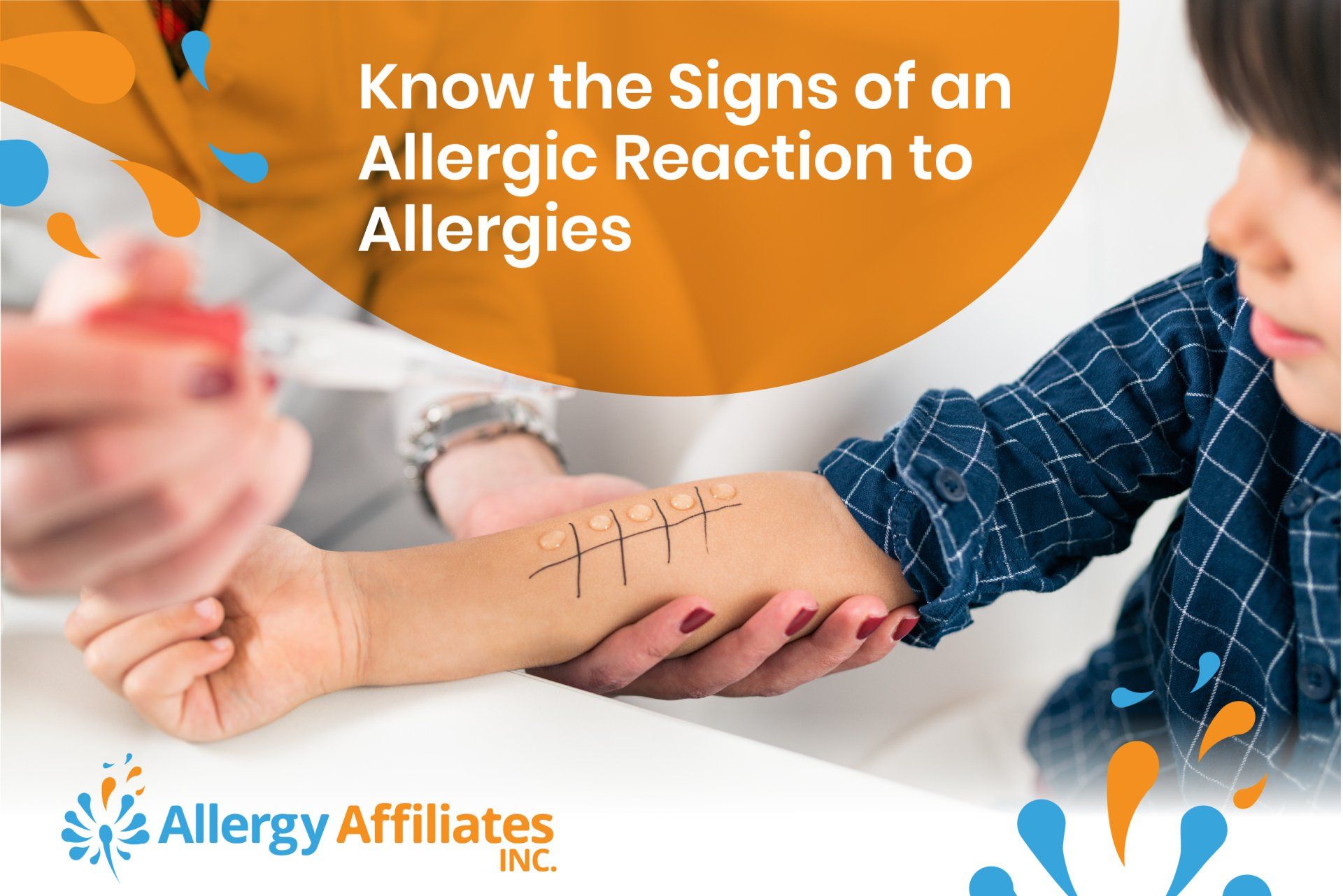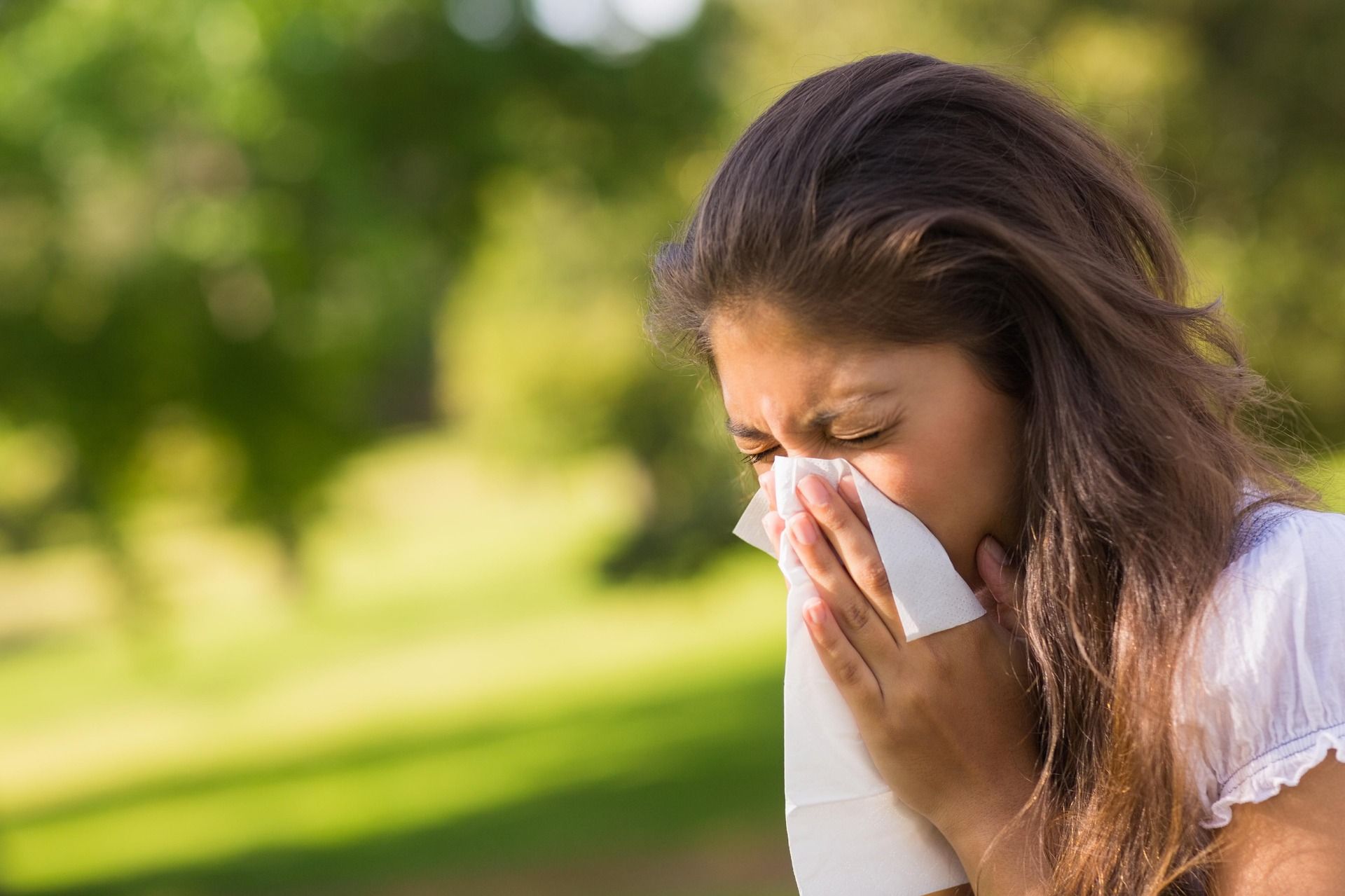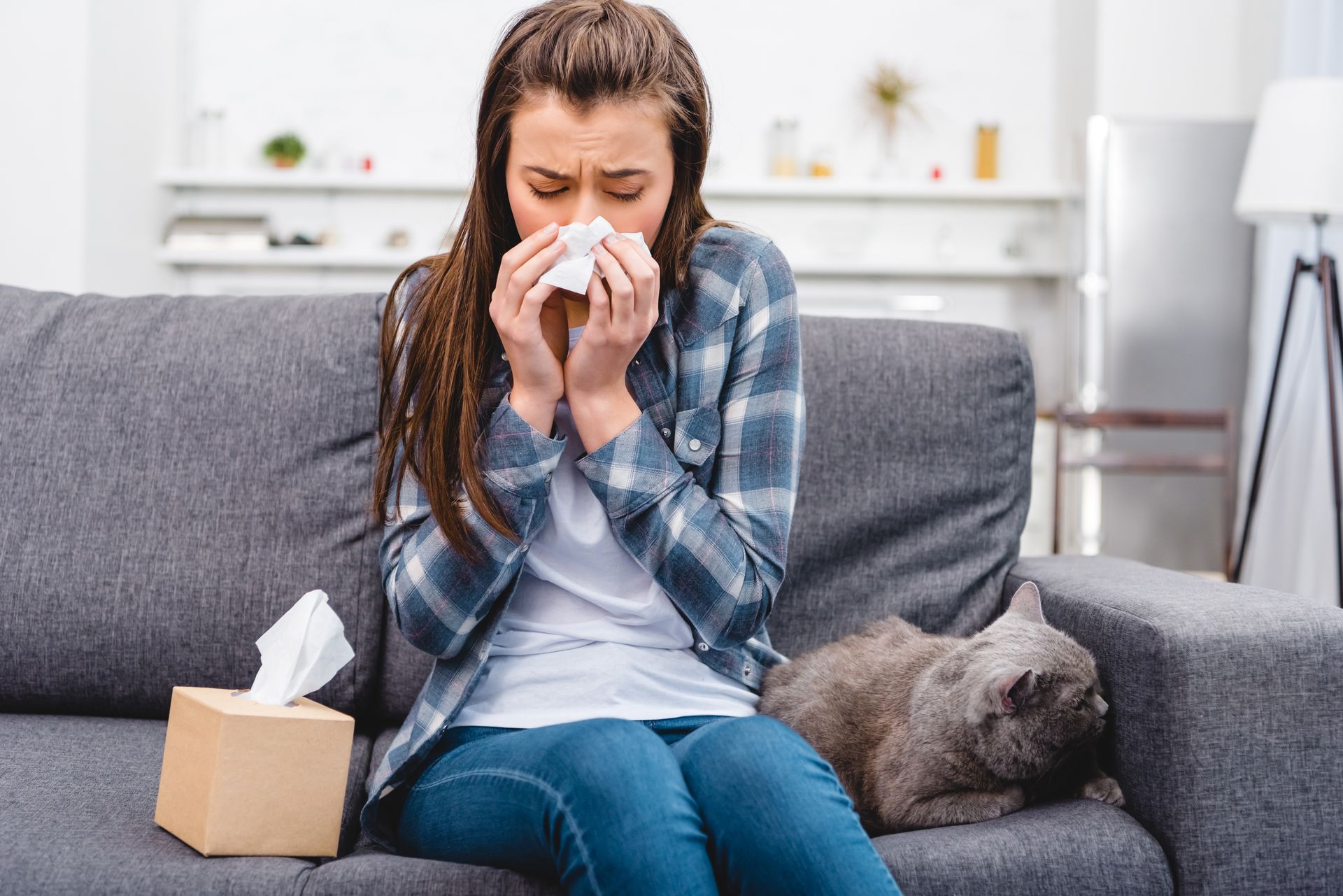
An estimated 50 million Americans suffer from allergies every year. Among these figures, over 200,000 people visit the emergency room due to an allergic reaction, and more than 50% experience a reduced quality of life due to allergy symptoms. Allergic reactions can manifest in many different ways, from an itchy rash to difficulty breathing. They can be serious and even life-threatening if not treated promptly.
This blog post will provide information on what an allergic reaction looks like and how to avoid them in the future. We hope this helps people better manage their allergies and stay healthy.
What is an Allergic Reaction?
Allergies occur when the body's immune system reacts to a substance the body deems harmful or foreign. These "foreign" substances are called allergens. An allergy reaction is the way the body responds to these allergens or sensitivities. It causes an overreaction of the immune system, where it tries to fight it off as an invader. In an effort to protect the body, the immune system produces antibodies such as immunoglobulin E (IgE) and histamine (a chemical that triggers allergy symptoms).
Among the most common allergy triggers or allergens are:
- Airborne allergens, such as dust mites, mold spores, pollen, and pet dander
- Foods such as but not limited to wheat, nuts, eggs, fish, shellfish, and dairy
- Allergies to plants such as poison ivy and poison oak
- Latex or other latex compounds
- Allergies to metal or household chemicals
- Medications like penicillin
- Insects such as stings or bites from wasps and bees
There are many allergic reaction types and ways on how allergens come in contact with your body. It can do so through your nose, skin, mouth, eyes, and gastrointestinal tract. This then can cause a myriad of symptoms that will be discussed thoroughly below.
Allergies can occur during certain seasons or at certain times of the year, such as when pollen is abundant. As for other allergies, they can happen when someone comes in contact with an allergen or is exposed to it.
The Signs and Symptoms of an Allergic Reaction
Allergy attacks can range from mild to bothersome, or they may be serious and potentially life-threatening. The severity of symptoms is determined by how your body reacts to allergens and the amount of allergen in your body. Allergies usually manifest within minutes to a few hours following exposure to an allergen. In addition, symptoms can also develop either separately or simultaneously. Here are the general signs and symptoms of an allergic reaction.
- watery, itchy eyes
- sneezing
- itchy rashes or hives
- stomach cramps
- mild nausea
- feeling sick
- itchy throat
- itchy, runny nose
- blocked nose
- coughing
- wheezing or shortness of breath
In rare cases, a life-threatening allergic reaction called anaphylaxis or anaphylactic shock can occur. Because this reaction is potentially fatal, it is critical to monitor for its symptoms. If any of these symptoms appear, seek immediate medical attention; dial 911 or contact a local ambulance service. Additionally, you must administer epinephrine to avoid severe, potentially life-threatening complications or death from anaphylactic shock. It manifests itself in the following ways:
- lightheadedness
- throat closing
- tongue swelling
- passing out or losing consciousness
- tightness or pain in the chest
- difficulty breathing - such as fast, shallow breathing
- wheezing
- rapid heartbeat
- disorientation or confusion
- severe coughing
- bluish skin or bluish lips
- vomiting, diarrhea, or stomach pain
- clammy skin
- feeling sick
In addition to the symptoms listed above, the following symptoms may occur with insect sting allergies. These are also signs that it could be life-threatening:
- trouble swallowing
- swelling of the face, mouth, or throat
- a sudden drop in blood pressure
- a feeling of restlessness and anxiety
- red, itchy hives that spread to other areas after being stung
Allergic Reaction Treatments
If you suspect you have allergies, consult an allergy/immunology specialist, especially if your symptoms persist after two weeks and seem to recur. Testing may be done to determine which allergen is causing your allergy symptoms. This way, your doctor can prescribe medications for treating allergic reactions or for helping prevent symptoms from becoming worse.
Testing for allergies typically includes:
- skin tests
- blood tests
- challenge (elimination-type) tests
Read our blog ‘Explaining the Different Types of Allergy Testing’ to know more about the different types of allergy tests.
While avoiding the allergen is critical for treatment, it rarely resolves the allergic reaction completely. That is why various treatment options are suggested. The following are some of the most frequently used remedies for allergy symptoms.
- asthma medications like inhaled and oral bronchodilators, inhaled steroids, and oral anti-leukotrienes
- antihistamines or a combination of OTC and prescription medications
- saline nasal irrigation
- nasal sprays or decongestants
- ointments or lotions to relieve rashes or itchy skin
- Immunotherapy or allergy shot therapy
Again, you should always consult an allergy specialist before beginning any treatment or medication.
Epinephrine for Anaphylactic Shock
Epinephrine is the only medication that is effective in reversing anaphylaxis. Antihistamines cannot be used to treat anaphylaxis. It is a safe medication that comes in an easy-to-use auto-injector that injects a single dose of medicine when pressed on the patient's thigh. Since it is only the treatment for anaphylaxis, it's important to have at least two epinephrine auto-injectors on hand.
Also, it is a good idea to wear a medical alert bracelet or necklace if you have a serious allergy so that others will know if you can't communicate during a severe allergic reaction.
Keep Your Allergies Under Control
There is no cure for allergies, but symptoms can be managed. Thankfully, allergy sufferers can manage their condition with medication and allergy management programs from
Allergy Affiliates. We help patients manage allergy-related symptoms by providing individualized support from a healthcare expert who understands their situation. Get in touch today with one of the most trusted allergy centers in Florida! Call 941-792-4151 or
schedule an appointment online.
Contact Us
Monday: 8AM–5:30PM
Tuesday: 8AM–5:30PM
Wednesday: 8AM–4:30PM
Thursday: 8AM–4:30PM
Friday: 7:30AM–4PM
Saturday: Closed
Sunday: Closed
Monday: 8AM–5:30PM
Tuesday: 8AM–5:30PM
Wednesday: 8AM–4:30PM
Thursday: 8AM–4:30PM
Friday: 7:30AM–4PM
Saturday: Closed
Sunday: Closed
Make an Appointment
Contact Us
We will get back to you as soon as possible.
Please try again later.
Contact Us
Tuesday:
- 9:00 a.m. - 12.30 p.m.
- 2:00 p.m. – 5:30 p.m.
Thursday:
- 8:00 a.m. – 11:30 a.m.
- 1:00 p.m. – 4:30 p.m.
Monday:
- 9:00 a.m. - 12.30 p.m.
- 2:00 p.m. – 5:30 p.m.
Wednesday:
- 8:00 a.m. – 11:30 a.m.
- 1:00 p.m. – 4:30 p.m.
Friday:
- 7:30 a.m. – 11:30 a.m.
- 1:00 p.m. – 4:00 p.m.
Make an Appointment
Contact Us
We will get back to you as soon as possible.
Please try again later.










